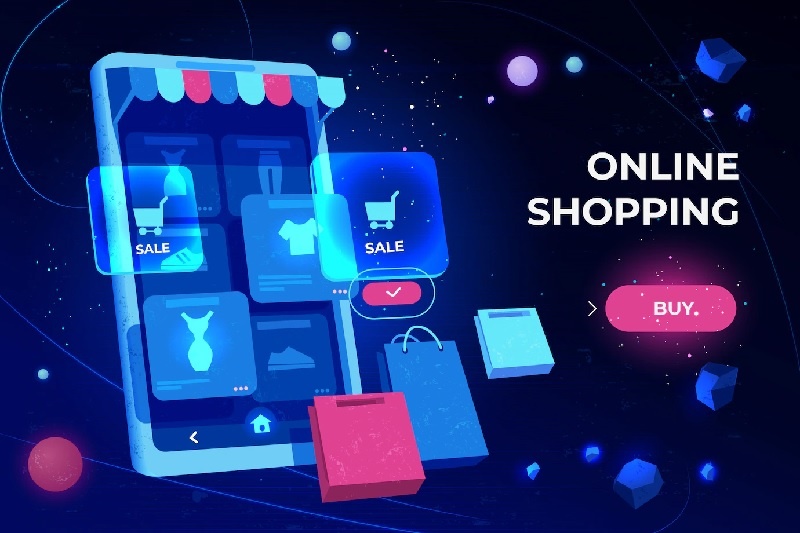On-demand services in steep advance
 |
| Illustration photo/ Source:freepik |
According to Nguyen Huy Hoang, chief business officer at OnPoint E-commerce, the e-commerce trends that were expected to happen by 2025, such as edtech and fintech, have already occurred in Vietnam.
“The pandemic pushed forward the trends of e-commerce in Vietnam 2-3 years earlier,” Hoang noted. “According to the latest report from Google, Temasek and Bain, in 2025, the e-commerce market size in Vietnam will be about $30 billion. Hence, all the e-commerce platform companies are investing hugely in the country.”
In many fields, from taxis to video-on-demand, what began as a question of the fastest way to do something has ended up replacing the original methods and revolutionising the whole industry. Specifically for e-commerce, a major driving force for the on-demand economy, the common behavioural trend is shifting towards accessibility, simplicity, and privacy, which is believed to be both a result and cause for the sector’s dramatic development. In Vietnam, this particular side of the economy is experiencing a 4.5 per cent on-year growth rate.
Elsewhere in the world, besides e-commerce, delivery services and the sharing economy that have become familiar, a number of other industries are experiencing disruptions due to new on-demand ideas.
Even in heavy industries like logistics or automobiles, long-term players are being shaken up by the emergence of innovative apps, including Instacart and Postmates (grocery shopping), JustPark (parking), Task Rabbit (handyman services) and Airbnb. According to a report by PwC, the global on-demand apps market will reach approximately $335 billion by 2025.
In Vietnam, education and healthcare are considered to be the next industries to participate in the on-demand race.
With new education models like asynchronous learning, and online or hybrid classes, learning-on-demand is a concept associated with the learner’s role in determining what they want or need to learn at any given time. This idea has brought about the rise of new edtech platforms like Topica, Duolingo, or ELSA speak.
“Vietnam has become our largest market in Southeast Asia. Specifically, 3 per cent of Duolingo’s daily active users are from Vietnam, and we saw a massive 67 per cent growth in monthly active users between January 2021 and January 2022,” said Haina Xiang, Duolingo’s marketing manager for China and Southeast Asia.
Consulting companies are also paying attention to this growing trend. Warrick Cleine, chairman and CEO of KPMG in Vietnam and Cambodia, said that the firm has launched an on-demand app to reach out to customers.
“The app gives our clients access to our people and our knowledge in ways that they didn’t previously have access to,” Cleine said. “Even as a very conservative market like the consulting industry, we have received a huge amount of engagement from our clients.”
Meanwhile, the past few years have witnessed the birth of an entirely online and on-demand healthcare segment, partly as a coping mechanism with COVID-19. Some popular apps in Vietnam include Suc Khoe Vietnam (launched by the Ministry of Health), Dr.OH, Apple Health, and eDoctor.
On-demand models are also believed to give businesses higher profits without the initial cost of business models. Since technology plays such an important part in this segment, the cost of logistics, human resources, and brick-and-mortar offices can be saved. While the focus of on-demand is business-to-customer, business-to-business (B2B) companies are not left out of the picture.
According to Nguyen Duc Trung, partner of VinaCapital Ventures, the supply chain disruption caused by the pandemic has accelerated the growth of B2B companies in the on-demand economy. At the same time, the government is also a determining factor in the process.
“The B2B side needs fertiliser and integration in terms of the global demand or local consumption. The on-demand economy can only be implemented effectively with the government regulating the supply chain to facilitate imports and exports, and the harmony in digital transformation among all of the larger corporations,” Trung noted.
On the other hand, a minus point of the on-demand economy model is the urgency in regulation adjustment and user privacy management. While most of the sectors with booming on-demand growth are previously highly regulated, their rapid development is putting state authorities in a regulation and tax puzzle.
In addition, given the huge amount of data generated by on-demand companies, changes in existing laws and regulations might result in massive transfers of sensitive customer data.
Hoang of OnPoint E-commerce assessed that another challenge for businesses entering the on-demand economy is the big shift in both business mindset and logistics.
“Specifically for Vietnam, I think a lot of enterprises are still stuck in the old way of thinking. So while customer behaviours change so rapidly, companies’ mindsets are not ready to catch up. After that, there have to be modifications to the supply chain and operations. There are a lot of new capabilities you need to acquire,” Hoang noted.
What the stars mean:
★ Poor ★ ★ Promising ★★★ Good ★★★★ Very good ★★★★★ Exceptional
Related Contents
Latest News
More News
- Private capital funds as cornerstone of IFC plans (February 20, 2026 | 14:38)
- Priorities for building credibility and momentum within Vietnamese IFCs (February 20, 2026 | 14:29)
- How Hong Kong can bridge critical financial centre gaps (February 20, 2026 | 14:22)
- All global experiences useful for Vietnam’s international financial hub (February 20, 2026 | 14:16)
- Raised ties reaffirm strategic trust (February 20, 2026 | 14:06)
- Sustained growth can translate into income gains (February 19, 2026 | 18:55)
- The vision to maintain a stable monetary policy (February 19, 2026 | 08:50)
- Banking sector faces data governance hurdles in AI transition (February 19, 2026 | 08:00)
- AI leading to shift in banking roles (February 18, 2026 | 19:54)
- Digital banking enters season of transformation (February 16, 2026 | 09:00)

 Tag:
Tag:




















 Mobile Version
Mobile Version